A horse riding holiday at the Ants Collection Reserve really is something special. This private reserve has diverse landscapes, from wide-open plains to beautiful mountain areas and is home to over 40 species of game including Sable Antelope, Nyala, Oryx, Eland, Giraffe, Buffalo, White Rhino and well over 300 species of resident and migrant birds. All these incredible creatures can be seen from horseback, but one encounter that always stands out in everyone’s memory, is the rhinos. As the horses are free roaming, a natural bond has formed between these two species and riders can get within meters of these incredible creatures. Being able to watch them in their completely natural habitat is an unforgettable and truly humbling experience.

Waterberg Rhino Old
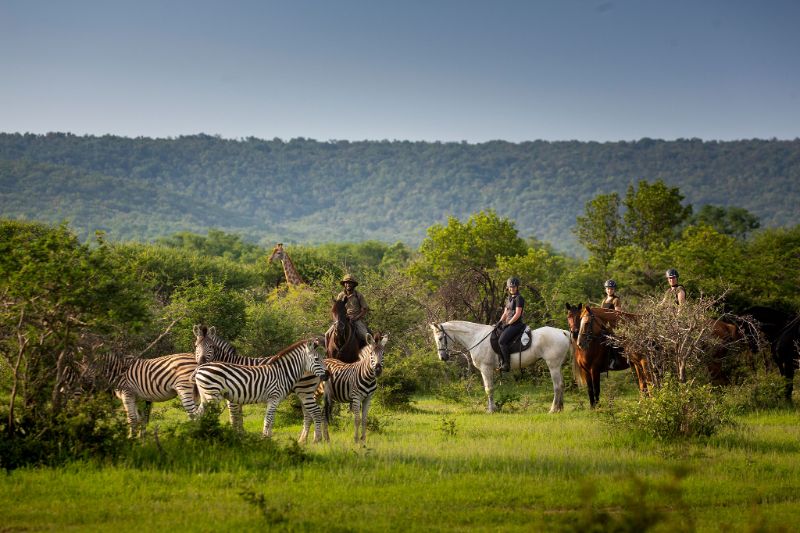
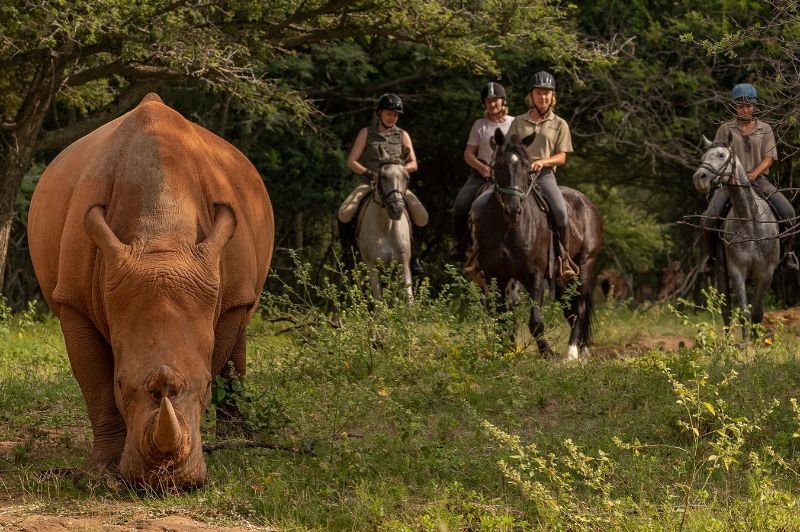
The Waterberg area is home to one of the three largest rhino populations remaining on the planet. A portion of every guests stay at the Ant Reserve is a Rhino Conservation levy that goes into the protection of these endangered animals, including 24 hour armed surveillance by their seasoned anti-poaching team. Just by travelling here, you directly ensure their survival! Guests are always welcome to join in on any wildlife management activities which are taking place on the reserve, all of which can be done on horseback. An annual game census takes place in June, offering an adrenaline-inducing week of fast riding and a unique opportunity to work closely with wild animals and the wildlife vet.
Responsible Travel is at the heart of this family-run reserve and they have also set up school sponsorships, community upliftment programmes and of course the Waterberg Rhino Charity.
Mission Statement/Summary of the charity
The aim of Waterberg Rhino UK (WRUK) is to raise funds and awareness to help protect the rhino population of the Waterberg, as well as protecting other species of wildlife and diverse habitat where they thrive. Through their 3 main focus areas – Security and Protection, Education and Awareness, and Community and Conservation – they are building a vast network of solutions, partners and supporters to help reach their mission to protect these endangered rhinos.
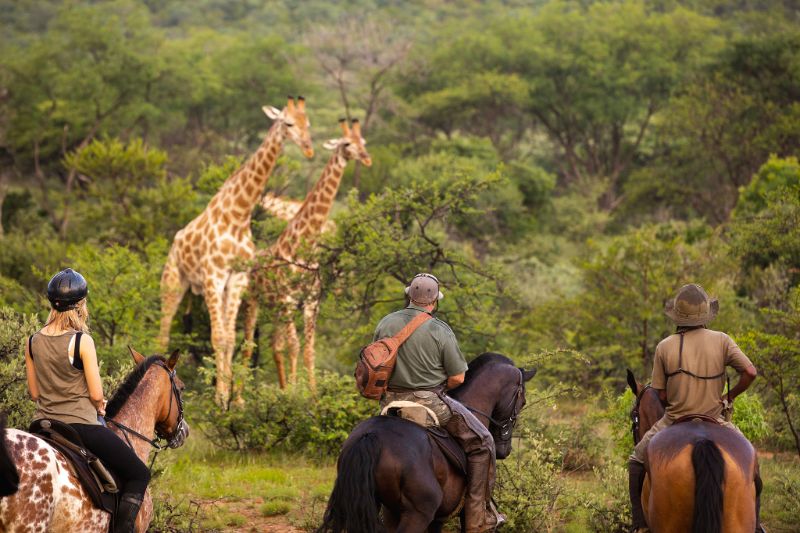
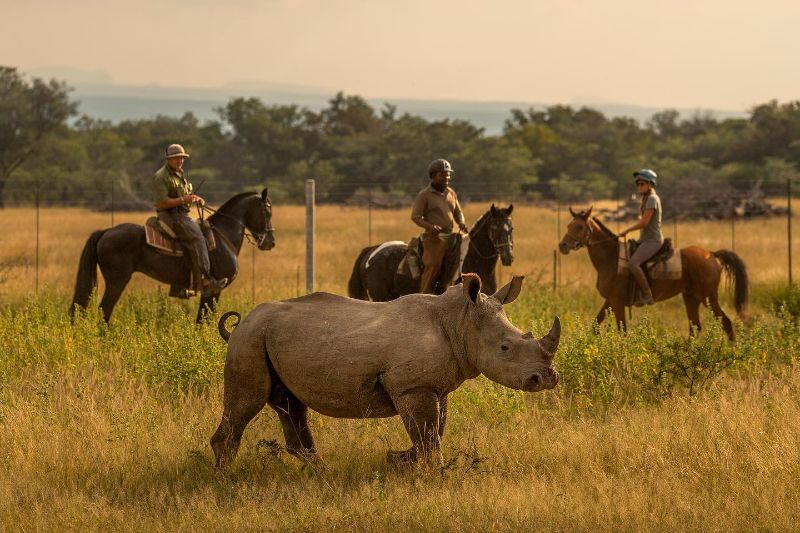
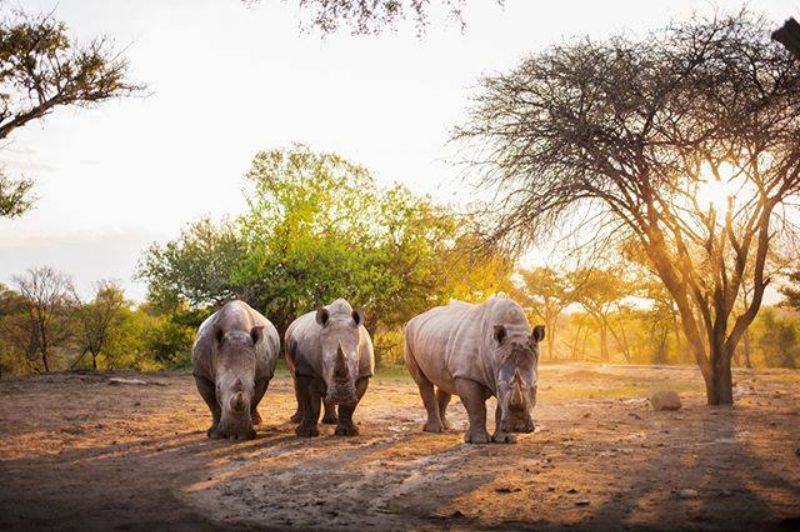
Brief history:
Waterberg Rhino UK (charity no 1187429 was set up in January 2020 by 5 dedicated trustees. Each had personal links to this unique area and saw the need to protect it. Living and working alongside these incredible creatures and the local communities lead for a commitment to it’s future and prosperity. They are aware that the delicate balance between humans and wildlife is never more evident than now.
This unique wilderness area of South Africa has been awarded the status of a World Biosphere reserve by UNESCO. It is a place to be protected and has become a popular safari destination where responsible travel is key. The majority of rhino in the Waterberg are privately owned, so the responsibility for providing security falls upon these individuals. This entails fully equipped rangers who patrol 24-hours a day which it is expensive, relentless and vital. The WRUK aims to raise funds to support the training of the rangers, purchasing much needed equipment and working alongside established NPOs to support the community through education and social upliftment programmes.
Examples of what they have done and how your money helps:

The number of rhinos in the Waterberg has increased due to breeding programmes and 24h monitoring.

LPR camera, using state of the art software have been installed to track suspicious vehicles, sharing the information with authorities, assisting in apprehending criminals and poachers.

Vital equipment has been purchased for rangers including, communication units, intelligence systems, bullet proof vests and safety equipment.

Workshops have been set up to introduce children from local schools and communities to the bush and its wildlife and create ambassadors for the future.

Food gardens have been set up in local schools and communities.

